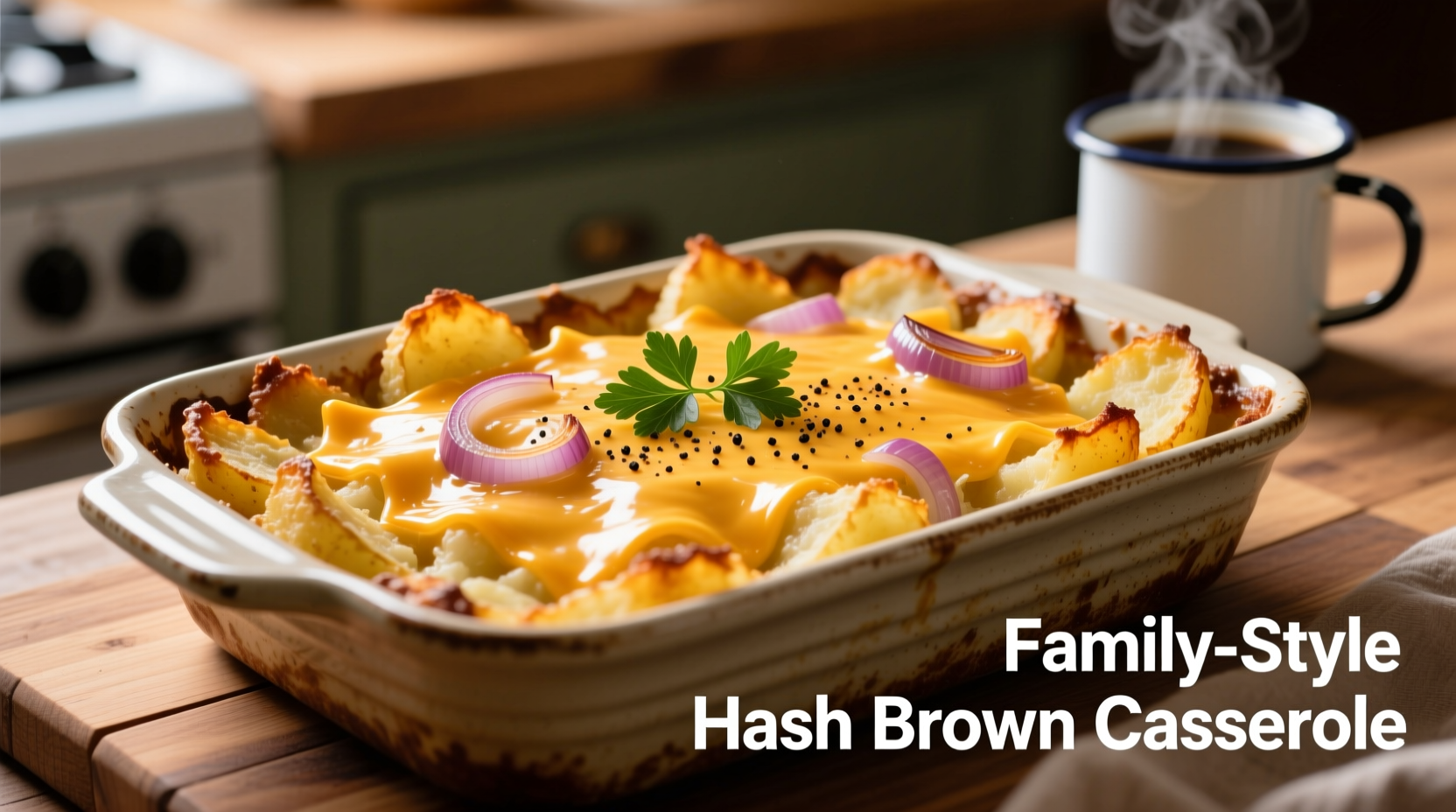Why This Recipe Works Every Time
Creating the perfect frozen hash brown potato casserole requires understanding the science behind the ingredients. Unlike fresh potatoes, frozen hash browns contain less moisture but need proper thawing techniques to prevent a soggy final product. Our tested method delivers a crispy top layer with a creamy interior—no more disappointing casseroles that fall apart or turn mushy.
| Ingredient | Key Function | Professional Tip |
|---|---|---|
| Frozen hash browns | Base structure | Thaw completely and squeeze dry for optimal texture |
| Sharp cheddar | Flavor foundation | Grate your own—pre-shredded contains anti-caking agents |
| Evaporated milk | Creaminess without curdling | Creates richer texture than regular milk |
| Panko breadcrumbs | Crispy topping | Mix with melted butter for golden finish |
Step-by-Step Preparation Guide
Follow this professional kitchen-tested sequence for guaranteed success. The order of operations matters more than you might think when working with frozen potato products.
Prep Phase: Setting Up for Success
Begin by thawing your frozen hash browns properly. Place them in a colander over the sink and run cool water for 2-3 minutes while gently separating the shreds. Then, spread them on clean kitchen towels and roll up to squeeze out excess moisture. This critical step prevents a watery casserole.

Cooking Process: Timing Is Everything
Combine your squeezed hash browns with 1 cup shredded cheddar, 1 cup evaporated milk, 1/2 cup sour cream, 1 teaspoon garlic powder, and 1/2 teaspoon onion powder. Mix gently—overmixing breaks down the potato structure. Transfer to a greased 9x13 baking dish.
For the topping, mix 1/2 cup panko breadcrumbs with 2 tablespoons melted butter and 2 tablespoons grated parmesan. Sprinkle evenly over the casserole. Bake at 375°F for 45-50 minutes until the internal temperature reaches 165°F and the top turns golden brown.
Avoiding Common Pitfalls
Even experienced cooks encounter issues with frozen potato casseroles. Here's how to solve the most frequent problems:
- Soggy bottom layer: Always squeeze thawed hash browns thoroughly. The USDA Food Safety and Inspection Service recommends removing excess moisture from frozen vegetables before cooking to prevent texture issues (fsis.usda.gov)
- Dry or crumbly texture: Don't skip the evaporated milk—it provides creaminess without the water content of regular milk. The National Center for Home Food Preservation confirms evaporated milk maintains stability during baking better than fresh dairy (nchfp.uga.edu)
- Undercooked center: Check internal temperature with a food thermometer. The FDA recommends 165°F as the safe minimum internal temperature for cooked casseroles (fda.gov)
Storage and Reheating Guidelines
Proper storage extends your casserole's life while maintaining quality. Cool completely within 2 hours of baking, then store in airtight containers. The FDA states cooked casseroles remain safe for 3-4 days in the refrigerator when stored properly.
For best reheating results:
- Refrigerated: Cover with foil and bake at 350°F for 20-25 minutes
- Frozen: Thaw overnight in refrigerator, then bake covered at 325°F for 45 minutes
Customization Options for Every Taste
This versatile base recipe adapts beautifully to different preferences. Try these professional-tested variations:
- Breakfast version: Add 6 beaten eggs and 1/2 cup cooked bacon before baking
- Vegetarian option: Mix in 1 cup sautéed mushrooms and spinach
- Spicy kick: Incorporate 1 diced jalapeño and 1/2 teaspoon cayenne pepper
Remember that frozen hash brown potato casserole's texture changes slightly with additions. When adding vegetables, sauté them first to remove excess moisture that could make your casserole soggy.
Time-Saving Kitchen Hacks
Busy home cooks appreciate these professional shortcuts that don't compromise quality:
- Prepare the casserole through the topping stage, then freeze unbaked for up to 3 months
- Use a food processor to quickly shred cheese (saves 8 minutes per cup)
- Thaw hash browns overnight in the refrigerator instead of using running water











 浙公网安备
33010002000092号
浙公网安备
33010002000092号 浙B2-20120091-4
浙B2-20120091-4